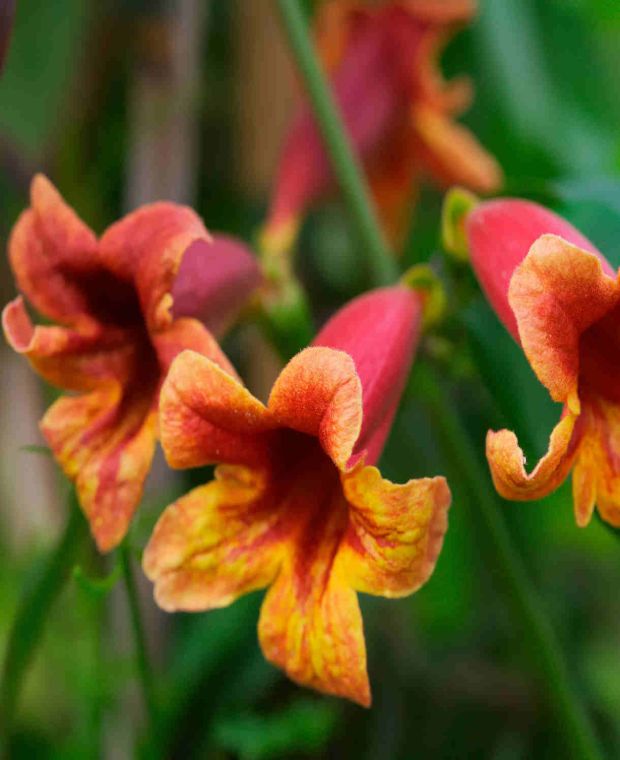An exciting, unusual climbing plant with elongated, simple foliage borne for most of the year when kept in a warm environment. From June to August large, cones of trumpet shaped blooms are borne – offering tropical sunset colours to enhance your home and garden. If that is not enough, these exotic beauties also offer a rich, warming scent – likened to mocha – for further enhancement. Bignonia capreolata is native to warmer parts of the USA and can either be grown outside as an annual or planted in a container which can be housed in a conservatory or heated greenhouse for part, if not all, of the year. Well worth the extra effort as not only does this wondrous plant draw in pollinators, it’s sure to attract plenty of admiring comments too. Prefers well-drained soil of any kind in full sun or partial shade with protection from cold winds if outdoors. Ideal for a south or west facing warm wall where this self-clinging climber will thrive in warmer months. Bignonia capreolata is a ten
Flower and Foliage Months

Jan

Feb

Mar

Apr

May


Jun


Jul


Aug


Sep

Oct

Nov

Dec
 Foliage Month
Foliage Month
 Flowering Month
Flowering Month







